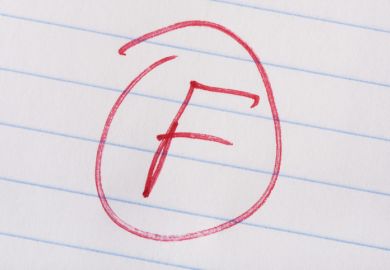The Harvard referencing style is popular around the world, with many universities adopting it as their only, primary, default or recommended referencing style. Except that it is not actually a referencing style. And it is not recommended by Harvard University.
Yes, the author-date convention is commonly attributed to a Harvard man, anatomist Edward Laurens Mark (1847-1946). But it has no institutional link to Harvard. Moreover, it lacks a proper referencing style’s set of well-defined, detailed specifications, which are usually defined and maintained by an authority, an association or a coalition.
Indeed, there is no such thing as “the standard” Harvard style. There are numerous referencing styles that are compliant with the Harvard principles, including APA, Chicago Author-Date and Elsevier Harvard. So Harvard is not so much a style as a system. And Harvard itself recommends the MLA style, the APA style and the Chicago style.
Most UK institutions that recommend Harvard fall into two broad categories: they either prescribe Cite Them Right Harvard or have their own referencing styles compatible with the Harvard principles. Recommending the former is nothing more than blatant promotion – intended or not – for Cite Them Right’s for-profit owner, Bloomsbury Publishing, to whose platform universities pay a subscription.
That’s bad enough, but it is the latter group of universities that has truly lost the plot, with some even retaining department-specific Harvard styles. Since different referencing styles within the same system have only minor differences, such as punctuation, capitalisation and italicisation, it is unconscionable for publicly-funded institutions to expend resources on the creation, maintenance and teaching of their specific versions, especially in today’s age of funding crises, redundancies, cutbacks and mergers.
The universities that adopt Harvard as their sole, primary or default referencing, sometimes with narrow exceptions, should also consider this system’s fitness for purpose.
The author-date system, common in the social sciences, is supposedly relevant for works that place particular emphasis on the currency of information and/or examine the evolution of scholarly schools of thought. As academic research has fragmented into vanishingly small niches of specialist conversations, the various Harvard styles work well for PhD theses in some humanities and social science disciplines, in which the author’s name and publication date reveal to the small number of intended readers the exact work being cited. The moment I see Ghemawat (2001), for instance, I know that what’s being referenced is Pankaj Ghemawat’s 2001 Harvard Business Review article “Distance Still Matters: The Hard Reality of Global Expansion”.
Harvard is also useful for works that care about recency and examine the evolution of ideas. However, it is not appropriate when the intended audience is more broad-based, when the bulk of the cited sources are non-academic or cross-disciplinary, or for works in which readability is important.
Apart from Harvard, there are another three popular referencing systems. MLA (author-page number) is useful for works that often engage in textual analysis or other forms of research that make heavy use of quotation and emphasise the researcher’s reading of a particular text and edition, such as philosophy and languages. Oxford (footnote/endnote) is commonly used in some science and engineering disciplines, as well as law; legal sources – government documents, legal cases, primary documents and manuscripts – don’t fit neatly in a brief parenthetical reference.
The other option is Vancouver (numbered sequence), which is valuable in works that cite a high number of studies, allowing the text to be read more easily. It is popular in medical and healthcare disciplines, as well as some fundamental sciences; online, the numbers within the text are typically hyperlinked to the relevant reference.
Even if we resign ourselves to the notion – and we absolutely must not – that the goal of academia is to prepare students for PhD programmes, it would be a travesty not to serve the interests of the vast majority who do not intend to pursue a PhD or an academic career.
Campus resource: Should we kill the essay?
More pertinently, the contemporary emphasis on employability demands authentic assessments that simulate workplace tasks – and it would be extremely rare for an academic essay to fit that bill. Non-practical authentic assessments would usually take the shape of professional reports, infographics, code, datasets, presentations or documents intended for consumption by non-academic audiences – who lack the disciplinary knowledge assumed by the Harvard system.
Parenthetical referencing also presents an accessibility and equity challenge. As the citations are placed directly in the text, they break paragraphs and even sentences, interrupting the flow of reading. Considering that reading ability and engagement are declining in the UK and elsewhere, we ought to be embracing solutions that enhance readability, rather than the opposite.
Bibliographical referencing systems also make it harder for markers to flag academic integrity issues. This is because, outside PhD theses in narrow disciplinary niches, it is getting harder, if not almost impossible, to identify cited sources at sight given the expansion in the literature. For example, in a strategy report on the electric car company Tesla, when a student uses the in-text citation Levy, et al (2010), it is not immediately obvious to me that they have referenced an article irrelevant to the submission simply because the title had the word “Tesla” in it. Nor will I necessarily spot a reference that has been hallucinated by the AI the student used to help them write the report.
Of course, I can always scroll to the bibliography and read the full citation, but as the time allocated for marking each submission is perennially reduced and markers mark submissions in electronic formats (flipping to the back page of a paper submission is much easier), this is becoming an increasingly impractical proposition.
For reasons of both readability and academic integrity, the best option is footnote referencing styles, such as MHRA. These are less intrusive than parenthetical styles and more upfront than bibliographical ones. That is why they are commonly used in popular books, professional reports and general-purpose resources, such as Wikipedia.
Beyond the question of which referencing style to recommend, universities need to consider a larger question: is there any value to making students learn specific referencing styles at all? Even within a single discipline, many reputed journals ask authors to comply with their own, specific referencing styles, for instance, giving knowledge of one of those styles a particularly limited currency. And given that most students do not seek academic careers anyway, expertise in a particular referencing style is unlikely to be a marketable skill for them.
Instead, universities should help students learn to use one of the many reference management programs available, such as the free and open-source Zotero. This takes care of the referencing style and can change it in a mere few clicks and seconds, allowing the writer to focus on properly sourcing – which is the important skill for employability.
An ancillary, but not insignificant, benefit of reference management software is that it allows the user to build an organised library of resources to which they have referred in the past. Hence, it becomes easier to pop back and check how many participants were involved in Gneezy and Rustichini (2000)’s first experiment. Equally, the library enables reuse – citing a work you have previously cited elsewhere is only a hop, skip and click away.
Zotero was released by George Mason University nearly two decades ago, in 2006. Isn’t it time we moved on?
Vivek Pundir is programme leader for the global MBA programmes in the Business School at Queen Margaret University.

‘Every semester, gloom falls across students’ faces when we cover citation’
I don’t like to think about the absurd amount of time I have wasted on referencing conventions over the course of my life.
Looking up the city of an editorial house, changing references from online to print so they are easier to cite, changing a journal article from one system to another for submission eligibility: all of these chores are infuriatingly laborious. I was once required to change the citation style for a 233-page book: this took over a week.
And it is all so anachronistic. The current citation principles and guidelines are firmly set around the year 1990, when librarians, editors, researchers and authors needed very precise information about a text to create a useful reference (and to find one). I remember standing in the library stacks as a graduate student with a scrap of paper listing the volume, issue, year, page, and so on of the sources I needed. The provision of such details was key to minimising search time in those days.
But no longer. Referencing a source now is as easy as pressing “control-K” to create a hyperlink. Since around 2005, every single time I’ve looked up a source I’ve gone through the same process: type the title in quotation marks into a search engine. When this doesn’t work, I search for a string of text in quotation marks (with the author’s name, if I have it).
At no point in the past 20 years have IEEE, ACS, CSE, GSA, MLA, Chicago or APA been of any use whatever in finding, citing or quoting a resource. Abiding by these referencing conventions only adds time and effort, detracting from the excitement of forging an argument in relation to existing scholarship with infinitely tedious headaches about the placement of this comma or that parenthesis, acceptable margin width, and if “eds” or “editors” is appropriate.
Moreover, these “best practices” do more than waste time. They also intimidate first-year students – especially first-generation scholars for whom English is a second language. I work with such students almost exclusively, mostly in STEM fields, and I can tell you that these demands cause boredom but also anxiety. So much focus on their minutiae negatively impacts what they write and research, and how they participate in the academy.
Every semester, gloom falls across students’ faces when we cover citation; uttering the letters “APA” or “MLA” in class often elicits groans. And I sympathise. First-year classes should be about reflection, growth, and new intellectual experiences. I want first-years to experience the joy of learning through writing. I want them to read and interact with ideas, to develop close-reading and debating skills. I want them to develop a relationship with words and reading, to consider the intersection of science and language, and to advance the patterning of knowledge through their own voices. I don’t want their excitement, originality or critical thinking marred by worries about where to put a comma or quotation mark – or about where to find out where to put a comma or quotation mark.
Yes, attribution is an essential skill in writing and scholarship. Yes, students need opportunities to develop ideas with academic rigour and consistency. But they can do so outside the parameters of traditional citation by leveraging skills they already have. Encouraging students to build their own internally consistent reference method, with inserted URL links, grows many skills that students will take with them as scholars and professionals.
If they must be taught at all, the tiresome mechanics of traditional referencing styles would be better left to a later moment: perhaps upper-level courses in specific majors. But must they be taught at all? I struggle to see why this institutionalised time-wasting still exists. The fact that citation guides are among many scholarly associations’ largest sources of income might be part of the answer. But citation handbooks should be open-source and demystified. Better still, they should be abandoned.
So should journals’ own house citation styles. Editors and publishers need to recognise the unacceptable time and effort required to change styles when a rejected paper is resubmitted to a different journal. Editors should ask for use “a recognised system of reference” or an “internally uniform style”, with inserted URLs as immediate signposts and source-acknowledgements. Scholarly databases such as Scopus, Web of Science, PubMed, EBSCO, Project Muse, JSTOR and others should consider implementing PDFs with inserted URLs.
In short, the academy should abandon the notion of “universalised citation” and move toward methods that are more practical, less time consuming, and more in touch with the needs and situations of students and faculty.
Jeffrey Herlihy-Mera is professor of humanities and director of the Instituto Nuevos Horizontes at the University of Puerto Rico-Mayagüez.
Register to continue
Why register?
- Registration is free and only takes a moment
- Once registered, you can read 3 articles a month
- Sign up for our newsletter
Subscribe
Or subscribe for unlimited access to:
- Unlimited access to news, views, insights & reviews
- Digital editions
- Digital access to THE’s university and college rankings analysis
Already registered or a current subscriber?








